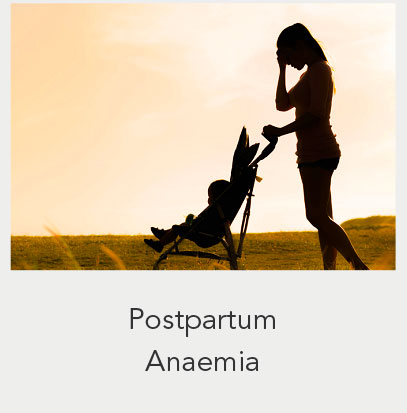
The period after childbirth can be a wonderful yet challenging time for new mums experiencing profound physical and emotional changes. However, they are also at risk for postpartum anaemia if they were anaemic during the third trimester of pregnancy, lost a large amount of blood during childbirth, had twins or other multiple births. Dr Michele Lee of Michele Lee Women and Fertility Clinic Pte Ltd sheds light on this condition.
Women are particularly at risk of iron deficiency due to blood loss during menstruation and the increased demand for iron during pregnancy. A woman needs twice as much iron when pregnant. This is an increase from fifteen milligrams a day to thirty milligrams a day. Dr Lee said, “It is quite common for mothers to be anaemic after delivery, as most women may experience average blood loss of 300-400ml blood loss during delivery. Also, anaemia tends to be more common for those on vegetarian diet and those with multiple pregnancies. And those with long labours.”
“Prevent the condition early in antenatal period and detect anaemia with blood investigation like getting a full blood count. Ascertain and treat the cause. A repeat full blood count can be done as one enters the third trimester.”
A lack of folic acid and/or vitamin B12 can also lead to anaemia. With the increased awareness around folic acid, this is getting less common but folate deficiency is still the second most common cause of anaemia in pregnancy. If left untreated, low blood count predisposes the postnatal patient to postpartum infection especially wound infection and poor wound healing. It may result in poor milk supply which affects breastfeeding. “You can also consider having highlights put in your hair, rather than dyeing the whole head. This decreases any risk as the dye is only placed on strands of your hair and does not touch the scalp,” Dr Goh suggested.
Women planning a pregnancy or who are pregnant should take 400 micrograms of folic acid daily before becoming pregnant if possible and for at least the first twelve weeks of pregnancy. Folic acid is needed for the development of the baby’s spinal cord and general growth. For a boost in folic acid, consider adding spinach, collard greens, kale, turnip greens and romaine lettuce into your daily diet.
Treating anaemia
The best way to prevent anaemia is to make sure you have a balanced diet rich in foods that are high in iron, such as red meat, wholemeal bread, eggs, green leafy vegetables, dried fruits and oral iron supplements. Vitamin C helps the body absorb the maximum amount of iron from your diet. This can be obtained from oranges, lemons, limes and raw vegetables.
While iron supplements can be taken, they should not be done so without also improving your dietary intake of iron, as this is the best way to obtain iron. Iron supplements should only be taken when there is a deficiency. Taking iron can inhibit the absorption of zinc, which is another essential element. Increased haemoglobin is associated with other pregnancy problems such as preeclampsia (high blood pressure in pregnancy).
The dangers of anaemia
The greatest physical danger associated with anaemia is the mother’s inability to withstand blood loss during the birth. If you are already running low on your iron stores and then lose a large amount of blood this can put you in danger of not having enough oxygen transported around your body. This is why anaemia needs to be detected as early as possible to give you time to build up your iron stores. Haemoglobin levels usually return to normal between 5-12 weeks following the birth. If, however, you had a large blood loss or were quite low in iron before the birth, this can take longer. Breastfeeding can put added demand on your iron stores.
Women who lose a large amount of blood during the birth (postpartum haemorrhage) are given iron tablets to take for several weeks after the birth. Having low haemoglobin can also make mothering so much harder and increases the risk of women feeling depressed.
Impact of postpartum anaemia
Postpartum anaemia caused by iron deficiency has been linked with the following consequences:
Article contributed by Dr Michele Lee, accredited doctor of Mount Alvernia Hospital.
This article is taken from our My Alvernia Magazine Issue #26. Read the issue on our website or on Magzter.